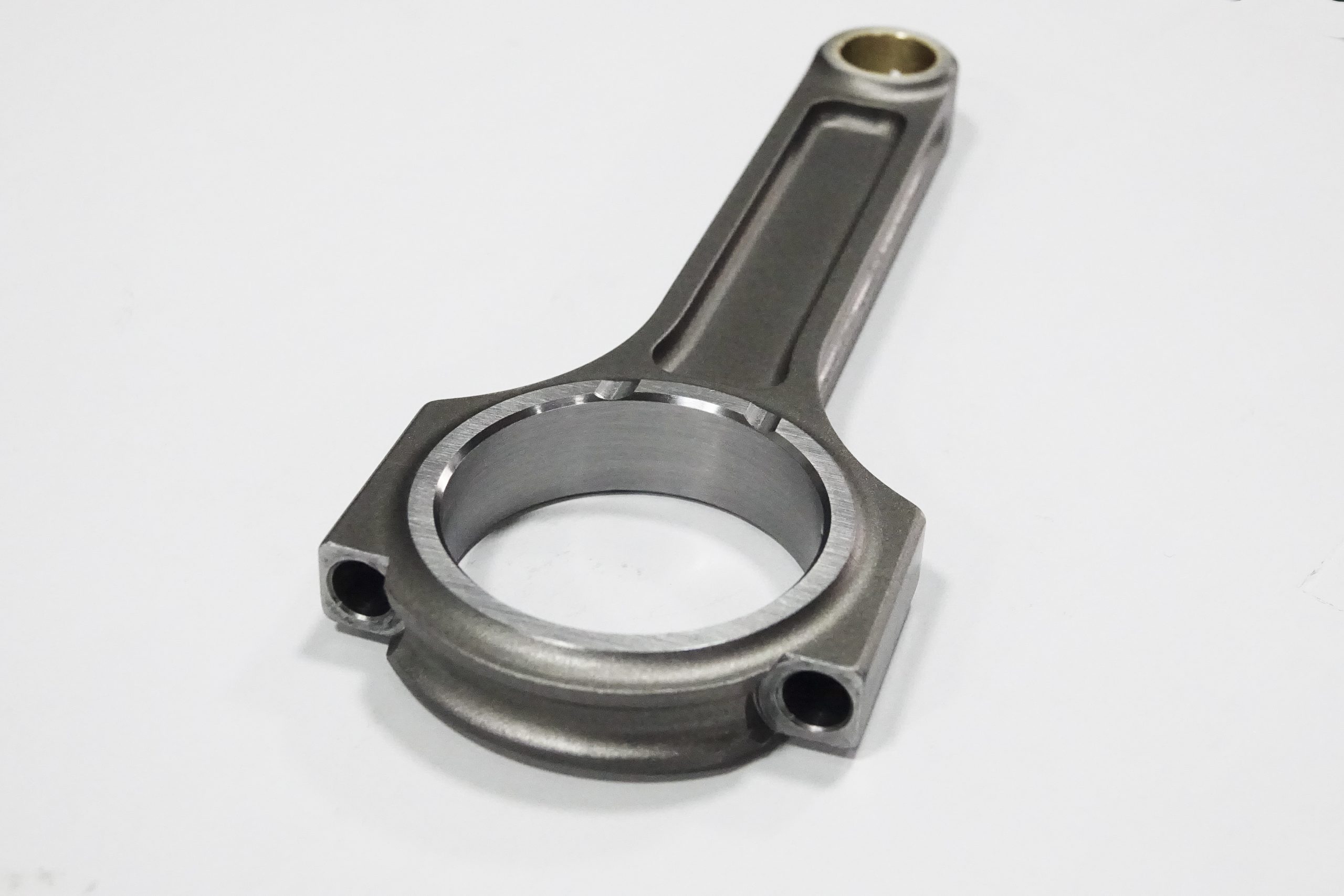The forged connecting rod manufacturing process is a critical aspect of producing high-quality engine components that can deliver exceptional performance and durability. In this article, we will delve into the intricacies of the forging process and how it contributes to the creation of top-notch connecting rods, such as those offered by FeDa.
The Forging Process: A Brief Overview
Forging is a metalworking technique that involves shaping a piece of metal by applying localized compressive forces. The process typically utilizes hammers, presses, or other tools to manipulate the metal into the desired shape. Forged connecting rods are renowned for their strength and reliability, as the forging process aligns the metal’s grain structure, resulting in improved mechanical properties.
Key Steps in the Forged Connecting Rod Manufacturing Process

- Material selection: The first step involves choosing the appropriate metal, such as high-strength steel or an alloy that provides the desired combination of strength, durability, and weight.
- Heating: The metal is heated to a specified temperature range, making it more malleable and easier to shape during the forging process.
- Forging: The heated metal is then placed under a press or hammer, which applies force to shape the material into the desired connecting rod form. This process may be performed using open-die or closed-die forging techniques, depending on the specific requirements of the component.
- Heat treatment: After forging, the connecting rods are subjected to heat treatment processes, such as quenching and tempering, to enhance their mechanical properties and ensure optimal performance in the engine.
- Machining: The forged connecting rods are then machined to achieve the precise dimensions and tolerances required for a perfect fit within the engine.
- Quality control: Rigorous inspections and testing are performed to ensure the connecting rods meet the highest quality standards before they are deemed suitable for use in an engine.
FeDa: A Leader in Forged Connecting Rods
FeDa is a reputable manufacturer that specializes in producing high-quality forged connecting rods, such as the Forged Connecting Rod I-Beam-2: Unrivaled Engine Enhancement. By utilizing advanced manufacturing techniques and maintaining strict quality control measures, FeDa ensures their products deliver outstanding performance and reliability.
For more information on how forged connecting rods can improve engine performance, check out Enhance Your Engine Performance with High-Quality Forged Connecting Rods.
In conclusion, the forged connecting rod manufacturing process plays a vital role in creating engine components that offer exceptional performance, strength, and durability. By understanding the intricacies of this process and choosing products from reputable manufacturers like FeDa, you can ensure your engine benefits from the highest-quality forged connecting rods available.
